Ekki Wood Life Cycle Cost Issues
On a per unit volume basis EKKI hardwood costs more than common domestic wood used in the same applications. This larger unit cost should be weighed against the advantages EKKI offers especially in terms of:
- reduced timber volume requirements
- reduced/eliminated maintenance and repair
- reduced facility downtime
- elimination of disposal costs
- other factors discussed below
Given EKKI's superior strength and toughness, frequently much less EKKI wood is required to do a given job than the same job performed by other common species, such as Douglas Fir for example. Refer to the strength data section to get an appreciation of the relative strength of EKKI hardwood compared to other common species. It is obvious that much less EKKI hardwood is required to do a given job.
EKKI hardwood is about 7 times harder and therefore about 7 times more resistant to abrasion than Douglas Fir. Therefore, given the same conditions and use, EKKI hardwood used in abrasive applications such as decking will last about 7 times longer than Douglas fir, and even longer when compared to other common species such as pine and spruce. Therefore, the replacement/repair rate of EKKI hardwood decks is much lower, greatly reducing, if not eliminating the need for replacement or repair. Not only is the total amount of required material reduced over the life of the facility, labour costs are also greatly reduced.
A special point about facility downtime for maintenance or repair, as for example maintenance/repair/replacement of timber bridge decks in remote areas. Work on such bridges can be of great inconvenience to its users. Frequently alternate bridges are far removed and detours may be long. Sometimes it is necessary to erect a temporary span while work is going on. Reduction for the need of detours or the erection of temporary spans saves aggravation, time and money. The use of EKKI decking, or overlay, reduces the need for maintenance and the higher initial cost of EKKI easily compensates for the costs associated with an otherwise much more intensive maintenance/repair/replacement schedule.
Compared to other wood species, especially treated wood, the eventual retirement of EKKI hardwood is non-problematic. Increasing numbers of jurisdictions prohibit the dumping of treated wood in their landfill sites. Further, treated wood cannot be safely burned. Seemingly extreme measures are sometimes taken to manage treated waste wood and all are costly and a management headache. EKKI wood does not pose such problems. Not only is there much less to dispose of, but whatever must be discarded may be safely burned.
For most applications the use of EKKI hardwood is very cost effective. Contact us for cost information and life cycle cost estimating.


